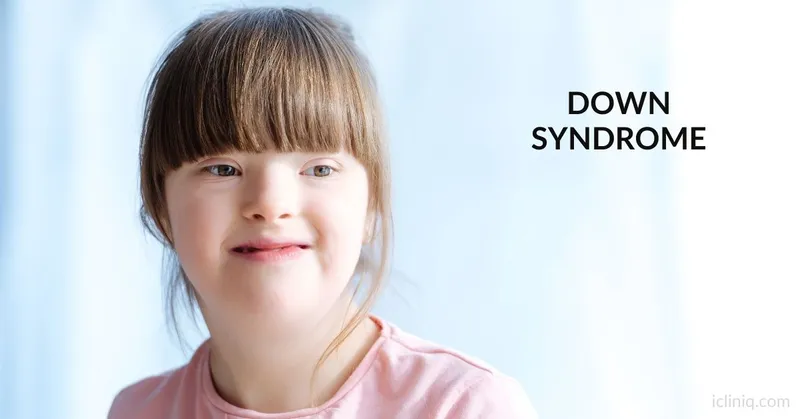Down syndrome is a genetic disorder caused by the presence of an extra chromosome 21. It is one of the most common genetic conditions, affecting approximately 1 in every 700 babies born in the United States. People with Down syndrome often have distinct physical features, developmental delays, and intellectual disabilities, but the severity of these symptoms can vary widely from person to person.
Causes and Diagnosis
Down syndrome is caused by an error in cell division that results in an extra copy of chromosome 21. This error can occur randomly during the formation of reproductive cells or early in fetal development. While the exact cause is unknown, several risk factors, such as maternal age, can increase the likelihood of having a child with Down syndrome.
Diagnosis of Down syndrome can be made before birth through prenatal screening tests, such as ultrasound and blood tests, which can detect the presence of extra genetic material. A definitive diagnosis is usually made through genetic testing, such as chorionic villus sampling (CVS) or amniocentesis.
Physical Features and Health Concerns
People with Down syndrome often have certain physical features, such as a flat facial profile, upward slanting eyes, and a short neck. They may also have other health conditions, including heart defects, gastrointestinal issues, and thyroid problems. Early intervention and regular medical care can help manage these health concerns and improve overall quality of life.
Developmental and Intellectual Abilities
While individuals with Down syndrome may experience developmental delays, many are able to reach significant milestones, such as walking, talking, and attending school. Intellectual abilities can vary widely, with some individuals having mild to moderate intellectual disabilities and others having more severe impairments. Early intervention programs, educational support, and therapy can help individuals with Down syndrome reach their full potential.
Living with Down Syndrome
With the right support and resources, many individuals with Down syndrome lead fulfilling lives. They can participate in community activities, hold jobs, and form meaningful relationships. It’s important to focus on their abilities rather than their disabilities, and to promote inclusivity and acceptance in society.
Conclusion
Down syndrome is a genetic disorder that affects individuals in different ways. With early intervention, medical care, and support, people with Down syndrome can lead happy, healthy, and fulfilling lives. It’s important to educate oneself about Down syndrome and to promote a more inclusive and understanding society for all individuals.

